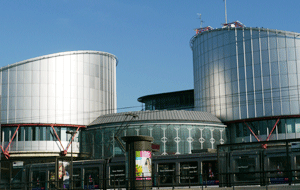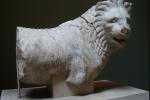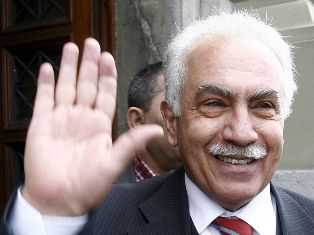By Ferruh Demirmen, Ph.D.
AVİM, Center for Eurasian Studies
October 26, 2015
When Pope Francis, during a Mass in St. Peter’s Basilica on April 12, 2015, pronounced the word “genocide” in reference to the 1915 events in Ottoman Anatolia a century ago, it was patently clear that he was delving into territory he should not have. It was a meeting where the pontiff and top Armenian clerics and Armenian President Serzh Sargsyan had gathered in what was apparently a show of Christian solidarity.
By recognizing “Armenian genocide,” and calling the Armenian victims “confessors and martyrs for the name of Christ,” the Pope was asserting an unproven event, revealing his prejudice, or at the vey best, his misjudgment. The recent decision from the Grand Chamber of the prestigious European Court of Human Rights (ECHR) is a testimony to the Pope’s wrongful and deplorable stance on Armenian allegations.
In its milestone decision announced on October 15, 2015, the Grand Chamber, by a majority vote, agreed with the Second (lower) Chamber’s 17 December 2013 decision that Switzerland had violated Turkish politician Doğu Perinçek’s right to freedom of expression when it imposed penalty on Perinçek in connection with his “denial of Armenian genocide.” Hoping to have the lower chamber’s decision reversed, Switzerland, under intense Armenian lobbying, had appealed that decision to Grand Chamber – obviously to no avail.
The Grand Chamber’s decision had two equally important ramifications. By letting stand the lower chamber’s decision, the Grand Chamber in effect affirmed that: (a) “Armenian genocide” is controversial and unproven, (b) there can be no comparison between the 1915 events and Holocaust.
The court’s position is consistent with the provisions of the 1948 UN Convention on Genocide (ratified in 1951), which first codified this term. According to this Convention, genocide is a legally construed special crime, and it can only be established through a judicial process in a duly authorized court – an international court or a court where the alleged crime was committed. Without a verdict from such a court, labeling an event as genocide lacks legal validity. In other words, it is merely an opinion.
To date there exists not a single court verdict characterizing the 1915 events as genocide. The UN has also refused to call the 1915 events genocide. When he decided to recognize “Armenian genocide,” the Pope should have been aware of these legal boundaries. ECHR is an organ of the 47-member Council of Europe.
So, one must ask, absent a judicial verdict, what gave the Pope the authority to call the 1915 events “genocide”?
In its February 3, 2015 ruling (Croatia v. Serbia), the International Court of Justice in The Hague also concluded that forced relocation, which is what happened in Anatolia in 1915, even if it results in killings, cannot be called genocide unless specific intent (dolus specialis) to harm or kill is proven. The court also held that the provisions of the 1948 Convention cannot be applied retroactively, i.e., judgments as to past events not permissible.
In the U.S. the Bill of Rights protects a party from being labeled guilty of a crime without due process; i.e., the alleged crime must be adjudicated in a court of law. The old, venerable adage, “Innocent until proven guilty,” must be respected.
It is obvious that by labelling the 1915 events as genocide the Pope exceeded his authority and violated both the European and American due-process standards. The same standards, in fact, also bind parliaments that have so far recognized “Armenian genocide.”
To date, the Armenian side, out of fear it would lose, has refrained from litigating its case in a court of law, preferring to influence the public opinion through propaganda instead.
A case in point is the 17 December 2003 order of the European Court of First Instance on a lawsuit lodged by a group of Armenian-French citizens against three European institutions including the Council of the European Union. The applicants had sought compensation for non-material damage suffered on account of, inter alia, recognition of Turkey’s status as a candidate for accession to the EU without Turkey’s prior acknowledgment of Armenian genocide. The court found that the applicants’ action was without legal merit and dismissed the claim, adding that the European Parliament’s 1987 resolution calling on Turkey to recognize “Armenian genocide” was purely political, without any binding consequences. Appeal of the ruling to the higher court was dismissed.
The case was a legal defeat for the Armenian side, also reaffirming the fact that Armenian “g” resolutions passed by parliaments are no more than political opinions.
Such realization should prompt parliaments that have recognized Armenian “g” to date to re-think their stance and rescind their decisions. The 1948 Convention does not make a distinction between “political” and “legal” recognition of genocide.
The Pope, of course, has the right to express his opinion on the 1915 events; but this is not the same thing as denouncing these events as proven genocide.
Speaking of opinion, in 1985 69 U.S. historians and researches signed a declaration, published in New York Times and Washington Post, stating that in their opinion the 1915 events do not constitute genocide. Among the signatories were eminent scholars such as Bernard Lewis. Surely, the Pope should have been aware of this declaration. Hence, even as regards opinion, there is no consensus among the scholars on “Armenian genocide.”
The Pope apparently is also not aware that in 1920 his predecessor Pope Benedict XV had pleaded with the British to release some of the high-ranking Ottoman officials who were being held on the Island of Malta on suspicion of complicity in massacring Armenians. Benedict XV, who had direct contact with the Ottoman authorities, obviously did not think the Ottoman government had murderous or genocidal intentions toward the Armenians. All 244 Malta detainees, in fact, were released by the British for lack of evidence and returned to Turkish soil.
So, one must ask the Pope: What did he know about the 1915 events in 2015 that his predecessor Benedict XV did not know almost a century earlier?
Human rights issue
The Pope, while recognizing “Armenian genocide,” astonishingly did not express any compassion for more than half a million civilian Muslims that lost their lives at the hands of renegade Armenian bands during the 1915 Armenian revolt.
In a gesture of humanity, the Pope could have also offered condolences to the relatives of 42 Turkish diplomats and 4 foreign diplomats that were assassinated by Armenian terrorists in the 1970s through 1990s – including Turkish ambassador to Vatican Taha Carım in 1977. Three years later, in 1980, Carım’s successor Vecdi Türel and his driver were wounded by the terrorists.
Likewise, the Pope could have expressed his compassion for the memory of the more than 600 Azeri civilians massacred by Armenian forces in the town of Khojaly in 1992.
The Pope’s “humanity” should not be limited by race, religion or ethnicity.
The 1.5 million Armenian victims alluded to by the Pope is also a grotesque exaggeration. The Armenian losses in Anatolia during World War I from all causes including fighting on the sides of the Allies were roughly 300,000, some 57,000 of which were during the relocation itself, most of them due to disease, famine and chaos.
Double standard
When he visited Sarajevo in June 2015, His Holiness, while denouncing the massacres inflicted upon the Bosnian Muslims in Srebrenica, refused to use the term “genocide.” This, despite the fact that two UN courts have unequivocally called the Srebrenica massacres genocide. The Pope ignored the appeals of Bosnian academics and representatives of war victims to recognize the massacres as genocide. Srebrenica in a sense is a stone-throwing distance from the Holy See.
Reflecting a shameful double standard, the Pope could not bring himself to use the word “genocide” when the perpetrators are Christian and the victims Muslim.
In conclusion, His Holiness should deal with matters of faith and stay away from highly-charged historical issues that sow discord and hatred in society. He should not readily accept Armenian “g” allegations presented to him on a gold platter by the Armenian side. Otherwise, his call for inter-faith and inter-communal dialog becomes shamefully hollow.






